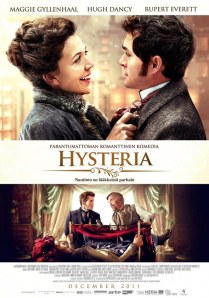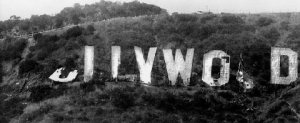Author Interview – James A Hillebrecht - The Paladin Trilogy
Jim Hillebrecht has been a writer for
almost thirty five years. He has produced almost a dozen books within this time
which ranges between techno-thrillers, paranormal drama and fantasy.
People have met James’s Trilogy with
much liking judging from comments that range between “very exciting to must add
this author on your favourite list.” It’s always an honour for me to host
published authors, especially those who are met by society with awe.
Welcome to the blog today James from
sunny South Africa. The festive season is about to hit off
with just over 5 five days to go. James’s work is the perfect relax read for
these times.
James. I was extremely humbled by your
short author note on your blog. Can you share this intimate view with the rest
of our readers?
Creative writing,
at its heart, is the sharing of emotional experiences between the writer and
the reader, using the characters as the vehicles for those emotions. Our literature is rich in emotions like hate,
vengeance, love, lust, anger, and joy, but in my experience, we tend to shy
away from the heroic. Or rather, we
escalate it to the extra-human level of a Conan or an Indiana Jones, a special
trait that raises them above common humanity.
But I believe the heroic resides within all of us, something that goes
beyond simple courage which is the tool for heroism, much as knowledge is the
tool for wisdom.
The main
character of the books is Darius, a Paladin who is a holy warrior quested to
confront great evil whenever it is unleashed upon the world. But it is not the task of the Paladin to
single-handedly destroy this evil. As
Darius’ mentor explains to him in the 1st chapter of the 1st
book, “Did you think that you and my
other sons were only to hack and slay?
No, you were to be the examples for Mankind, the proof that there was a
better way than the paths of darkness, the heroes that might stir men’s' souls
to valour.” This is the very heart
of the entire Trilogy, that when danger and intrigue and confusion begin to
sway people into compromising with that evil, it is Darius who helps them to
find the hero within themselves.
Can you tell our readers what made you
start writing?
I think I have
always been interested in story-telling, and it seems to be a natural outlet
for a restless imagination. The Trilogy,
however, has a very different root. I
began playing the fantasy role-playing game (RPG) Dungeons and Dragons back in
the Summer of 1978 with a group of close friends, and we are still involved in
campaigning in the same world today. In
1989, I took an informal college course on how to get published, and while the
curriculum was a fairly standard introduction to query letters, the instructor
did assign one fascinating project:
compose a query letter for the project you will never write. At the time, I was writing “serious” fiction,
and the idea of working on a sword-and-sorcery fantasy was the furthest thing
from my mind. So I wrote the query
letter, and I fell in love with the idea.
The first book of the Trilogy, A Rage in the Heavens, was the result.
Interestingly,
the book initially could not find an audience, at least partially because it
was the first book of an unfinished Trilogy.
My agent at the time was not accustomed to handling fantasy, and after
about a year of collecting rejection letters, I finally put it up on the
shelf. Then, around 2002, my eldest
Daughter, Barbara, pulled down the manuscript, read it, and insisted that I
complete the other two books. And the
Paladin Trilogy came to fruition.
Do you have a specific genre you are
writing for?
The Paladin
Trilogy is a sword-and-sorcery, high fantasy work that is grounded in the rich
heritage of Lord of the Rings and the various RPG systems. I was hoping to hit that ideal middle-ground
between adults and teen-agers, and while the books appear to have been very
well received by the adult audience, the teen-aged response seems to be
mixed. The relentless action of the
books attracts some, but the political intrigue and the complex characters
appear to be a bit much for others.
The Paladin trilogy consists of three
novels. Can you tell our readers a bit more about them?
The first book, A
Rage in the Heavens, was written in the early 90s, and by its nature, it is a
simpler story, the tale of an aging fighter called out of a well-earned
retirement to confront a barbarian invasion that is led by an unstoppable titan
known as the Juggernaut. But unknown to
him, his teen-aged Daughter, Shannon, has also heard a distant call, and she
follows in his footsteps to where the war rages.
In the second
book, Upon This World of Stone, the simplicity of the first book darkens and
complicates as more details become clear.
The Juggernaut is a weapon of the Ancient Wars before the birth of Men,
and it has been set free by the tyrant of the barbarians after he came into
possession of a demonic sceptre that has given him incredible powers. But while the purpose of the tyrant to
conquer and pillage is crystal clear, the intent of the demon sceptre is still
shrouded in mystery
In the third and
final book, Darkness Ascending, the various strings of the story come together
in a compelling Gordian Knot as the ancient struggle between the gods begins to
emerge once more. Here, Darius’ ability
to inspire is put to its final test as the ruthless and cunning thief, Adella,
and Darius’ Daughter Shannon find themselves pulled into the final
confrontation where the devastating plans of the gods themselves are revealed –
and which only they have even a chance counter.
Your favourite character within them?
What makes him/her dear to you?
That’s almost
like asking a parent which is their favourite child. These characters have been with me for over
20 years, and they are now all old friends.
But I have to go with the Paladin Darius and the Thief Adella, because
their interaction is a wonderful part of the chemistry of the three books. They come from radically different
backgrounds, and their choices have put them on a collision course, especially
since Adella wields the evil sword Bloodseeker, the absolute antithesis of
Darius’ sword Sarinian. As Darius tells
her early on “We are friends the world has cast as foes”, and when they are
able to put their differences behind them, they make an extremely effective
team, complementing the others’ weaknesses and augmenting each others’
strengths.
The humour and
the conflict between them is a fun sub-plot throughout the books, as is the
lurking and forbidden romantic tension.
It is interesting that when the question is asked “should Adella and
Darius end up together?”, the reaction is split perfectly down gender
lines. Every woman who has read the
books responds with a resounding “Yes!” while male readers inevitably answer
with an equally emphatic “No!” I’ve
occasionally felt I should have two different endings f I want to keep everyone
happy.
On your website you have a link that
refers to “The Campaign” can you tell our readers a bit more about it?
“The Campaign”
refers to the RPG world that I and my friends have been designing, developing,
and evolving for more than 30 years. A
role-playing game, simply put, is when players generate characters for a
medieval setting, and the game-master designs all the intricacies of that world
and then allows the players to adventure in that environment. The current group of characters was
introduced in 1981, and we have had some epic playing sessions, many of which
will start on a Friday night and end in exhaustion on Sunday afternoon. My earlier contention that the heroic can be
found within all of us is sometimes demonstrated by the valour of these
characters when standing against an overwhelming evil – some things you simply
cannot play act.
People have commented on your rather
intriguing covers can you tell us a bit more about the mastermind behind them?
John Blumen and I
met in our 9th grade homeroom, and we have been fast friends ever
since. John was the silent, watchful
artist, and I was a history nut with a real fascination for all things
nautical. When there was a school
announcement congratulating John on his construction of a model of the USS
Constitution, I made a point of seeing it and was astounded not just by the
intricate detail of the vessel but by its flawless historical accuracy. I fell in love with his work on the spot, and
John, I think, was just relived to find somebody who knew the difference
between an American frigate and a Spanish galleon.
Ever since I
wrote the first sentence of A Rage in the Heavens, I have dreamed of John
designing the covers of the Trilogy.
John has developed into a successful commercial artist whose credits
include covers for major publishers like Tor and Penguin, but he has always
cautioned me that publishers often have their own stable of illustrators and
are unlikely to even look at covers from “the author’s friend”. StoryMerchant gave me the freedom to use the
illustrator of my choice, and John has done a superb job of creating covers
that work both as a thumbnail for e-books and as the full-blown jackets of the
paperbacks. It is my heart-felt hope
that people will judge my books by their covers.
People have complemented your works by
saying it’s intriguing especially to those that like political intrigue,
medieval imagery and clever characters how have you dealt with bad reviews?
Well, fortunately,
there have been no formal bad reviews to date, but all of my books go through
an exhausting series of proof-reads by a loyal following of tireless
friends. Everything is on the table with
the avowed purpose of helping to lift the work to the next level, whether that
be to acceptable to good or to very good.
Criticism is a priceless opportunity to improve, and it only becomes a
problem if you think your work has reached the pinnacle where no further
improvement is possible. I expect and
hope that I will never reach that point.
Where can readers find your works and
stay in contact?
My web site can
be reached at:
You’ll find the
Prologue to the first book there which you can read for free in order to get a
flavour of the Trilogy. The books
themselves are available on Amazon/Kindle as both e-books and large
paperbacks.
A Rage in the Heavens
http://dld.bz/bSznP (e-book)
http://dld.bz/bSzzw (paperback)
Upon This World of Stone
http://dld.bz/bSmNv (e-book)
http://dld.bz/bSznB (paperback)
Darkness Ascending
http://dld.bz/bSzy7 (e-book)
http://dld.bz/bSzyG (paperback)
Plans for the future?


















